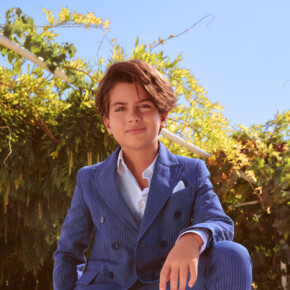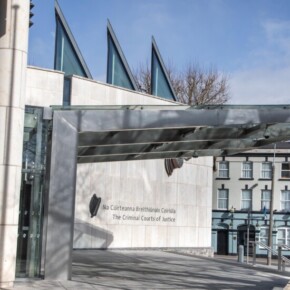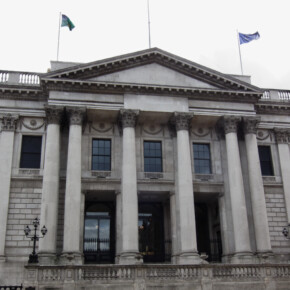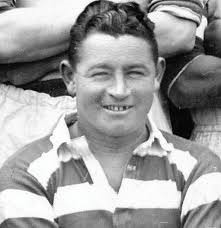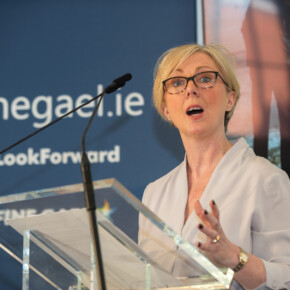Bird takes flight thanks to strong performances
Mike Finnerty 06 Nov 2024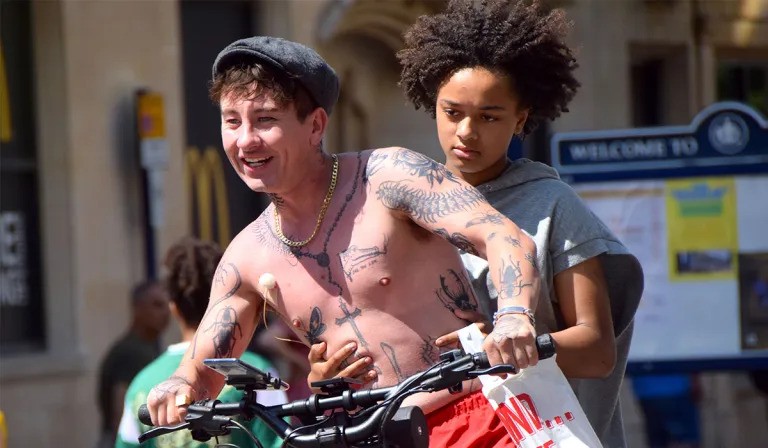
The very best filmmakers are the ones who boast the ability to transport you to a specific time and place.
English director Andrea Arnold is one such filmmaker, and her latest film Bird is a reminder of Arnolds’ talents.
Bird is Arnolds’ first narrative feature since 2016’s American Honey and first film since the 2021 documentary Cow which somehow made a documentary about the life of a cow fascinating.
Bird follows a 12-year-old named Bailey who lives in a squat with her father, played by Dublin’s own Barry Keoghan, her younger sister and her mother-to-be.
Newcomer Nykiya Adams, in her first screen credit, carries the film and the audience is with her every step of the way.
Arnold has an uncanny ability to make every actor seem like the most naturalistic in the world and Adams is no different.
The audience doesn’t know Adams from a hole in the ground when the film starts, whereas the audience has a built-in perception of what a Barry Keoghan performance is like.
Over the course of the runtime, Adams grows in front of our eyes from a moody pre-teen with an artistic eye to someone who realises her place in the world.
Keoghan’s performance as Bailey’s father is reminiscent of Robert De Niro circa This Boy’s Life or A Bronx Tale; the kind of father who is bad at being a human being but deep down has a shred of decency left in him.
The family lives in a squat in a coastal Kent town; there is a real lived-in sensibility to the sights and places of Bird and Arnold does a fantastic job at painting a picture of a town that has had the world pass it by.
Despite the film taking place now, with the use of smartphones, projectors and the modern soundtrack, there is an almost British kitchen sink feel to the film, a sense this film could have been made by Ken Loach.
The abject poverty Keoghan and his family live in is reminiscent of a classic BBC Play For Today, while the idea of living for the weekend brings a film like Saturday Night and Sunday Morning to mind.
As the film starts, we see Keoghan whizzing through the streets of Kent on an electric scooter hollering along to Fontaines DC with Bailey in tow and a drug toad in a plastic bag.
Keoghan takes a back seat as the film progresses – people expecting a full-on Keoghan showcase might be left disappointed – but Keoghan’s presence looms large over the film.
It is reported that Keoghan pulled out of Gladiator II to appear in this film, and it is refreshing that a star like Keoghan still has the instincts in him which allows him to hand himself over to an auteur.
There is a vulnerability and edge to Keoghan’s performance that reminds us of, yes, Marlon Brando.
The stand-out scene from the film has Keoghan and his friends, in a bid to produce sweat from his drug toad, sing a Coldplay song to it in a bid to make it happy.
Keoghan tells his friends that the frog is only able to produce the necessary fluid when it’s happy, as playing angry punk songs at it wasn’t working and stressing it out.
Bird is a film where going beat by beat or discussing the plot doesn’t really matter; the film is interconnected and has an overarching theme, but the meat of the film is the human story being told at the centre of the film.
There is a slice-of-life quality to Bird that makes it appealing.
The plot moves from A to B, there is a clear first, second and third act but it’s not a traditional film in that sense.
The strength of Bird comes in the moment-to-moment action of the film and how the characters interact.
Bird would pair nicely with Wim Wenders’ Perfect Days; Bird is the spicy and Perfect Days is the crispy in the cinematic spicebag.
Both films are detailed examinations of how people try to find their creature comforts in a manic world.
As mentioned, the film isn’t necessarily a Keoghan star vehicle, his character drifts in and out of the film at certain points, with most of the film focusing on Bailey as she goes on her travels around the Kent seaside.
On her travels, she encounters the mysterious Bird, played by Franz Rogowski.
Rogowski became a cult hero almost overnight thanks to his performance in queer drama Passages in 2023 and the German has added another refreshing and weird performance to his CV.
Rogowski is framed in this film like how Anton Corbijn would frame Dave Gahan in a Depeche Mode music video; there is something off-putting but appealing about him; you want to know everything about him but want to retain the element of mystery.
There is an exotic quality to Rogowski’s performance; you can never quite figure out what his deal is but that makes him more exciting to watch.
Prior to his Oscar-nominated work with Yorgos Lantihmos, Dublin cinematographer Robbie Ryan worked with Arnold on her earlier films and Ryan’s work here manages to capture something elusive.
Ryan’s work on this film blends slightly dreamy Corbijn-esque visuals, some Dogme 95 action where the only noise and light in a scene comes from the environment they are shooting in, and some handheld smartphone cinematography.
Ryan’s willingness to experiment with the form, be it the fisheye lens in Poor Things or the leave the camera running mentality of I, Daniel Blake, makes him a crucial part of any film.
Dubliners might be going to see this film because Barry Keoghan is in it, but Robbie Ryan’s contributions are just as important to the film as the people in front of the camera.
Bird isn’t necessarily a film for someone expecting Hollywood blockbuster thrills or wacky Barry Keoghan hijinks; this is a much more reserved, formal affair with some flights of fancy.
For the more patient viewer after something more thoughtful and introspective, you can’t go far wrong with Bird.
Bird is in Irish cinemas from November 8.


